- Home
- Patricia Cornwell
The Body Farm ks-5 Page 3
The Body Farm ks-5 Read online
Page 3
"Was this also in Black Mountain?" I asked.
"No, ma'am. It was before the Steiners moved to the area. They're from California. You know, we got folks from all over." Ferguson added, "A lot of foreigners head to our hills to retire, vacation, attend religious conventions. Shit, if I had a nickel for every Baptist I wouldn't be sitting here."
I glanced at Marino. His anger was as palpable as heat, his face boiled red.
"Just the kind of place Gault would get off on. The folks there read all the big stories about the son of a bitch in People magazine, The National Enquirer, Parade. But it never enters no one's mind the squirrel might come to town. To them he's Frankenstein. He don't really exist."
"Don't forget they did that TV movie on him, too," Mote spoke again.
"When was that?" Ferguson scowled.
"Last summer. Captain Marino told me. I don't recollect the actor's name, but he's been in a lot of those Termination movies. Isn't that right?"
Marino didn't care. His private posse was thundering through the air.
"I think the son of a bitch's still there." He pushed his chair back and added another wad of gum to the ashtray.
"Anything's possible," Wesley said matter-of factly
"Well." Mote cleared his throat.
"Whatever you boys want to do to help out would be mighty appreciated."
Wesley glanced at his watch.
"Pete, you want to cut the lights again? I thought we'd run through these earlier cases, show our two visitors from North Carolina how Gault spent his time in Virginia."
For the next hour horrors flashed in the dark like disjointed scenes from some of my very worst dreams. Ferguson and Mote never took their wide eyes off the screen. They did not say a word. I did not see them blink.
2
Beyond windows in the boardroom plump groundhogs sunned themselves on the grass as I ate salad and Marino scraped the last trace of the fried chicken special off his plate.
The sky was faded denim blue, trees hinting of how brightly they would burn when fall reached its peak. In a way I envied Marino. The physical demands of his week would almost seem a relief compared to what waited for me, perched darkly over me, like a huge insatiable bird.
"Lucy's hoping you'll find time to do some shooting with her while you're here," I said
"Depends on if her manners have improved, " Marino pushed his tray away.
"Funny, that's what she usually says about you."
He knocked a cigarette out of his pack. "You Mind?"
"It doesn't matter because you're going to smoke anyway."
"You never give a fella any credit, Doc." The cigarette wagged as he talked.
"It's not like I haven't cut back." He fired up his lighter.
"Tell the truth. You think about smoking every minute."
"You're right. Not a minute goes by that I don't wonder how I stood doing anything so unpleasant and antisocial."
"Bullshit. You miss it like hell. Right now you wish you was me." He exhaled a stream of smoke and gazed out the window.
"One day this entire joint's going to end up a sinkhole because of these friggin' groundhogs."
"Why would Gault have gone to western North Carolina?" I asked.
"Why the hell would he go anywhere?" Marino's eyes got hard.
"You ask any question about that son of a bitch and the answer's the same.
Because he felt like it. And he ain't gonna stop with the Steiner girl.
Some other little kid-some woman, man, hell, it don't matter-is going to be in the wrong place at the wrong time when Gault gets another itch."
"And you really think he's still there?"
He tapped an ash.
"Yeah, I really think he is."
"Why?"
"Because the fun's just begun," he said as Benton Wesley walked in.
"The greatest goddam show on earth and he's sitting back watching, laughing his ass off as the Black Mountain cops run around in circles trying to figure out what the hell to do. They average one homicide a year there, by the way."
I watched Wesley head for the salad bar. He ladled soup into a bowl, placed crackers on his tray, and dropped several dollars in a paper plate set out for customers when the cashier wasn't around. He did not indicate that he had seen us, but I knew he had a gift for taking in the smallest details of his surroundings while seeming in a fog.
"Some of Emily Steiner's physical findings make me wonder if her body was refrigerated," I said to Marino as Wesley headed toward us.
"Right. I'm sure it was. At the hospital morgue." Marino gave me an odd look.
"Sounds like I'm missing something important," Wesley said as he pulled out a chair and sat down.
"I'm contemplating that Emily Steiner's body was refrigerated before it was left at the lake," I said.
"Based on what?"
A gold Department of Justice cuff link peeked out of his coat sleeve as he reached for the pepper shaker.
"Her skin was doughy and dry," I answered.
"She was well preserved and virtually unmolested by insects or animals."
"That pretty much shoots down the idea of Gault staying in some tourist trap motel," Marino said.
"He sure as hell didn't stash the body in his minibar." Wesley, always meticulous, spooned clam chowder away from him and raised it to his lips without spilling a drop.
"What's been turned in for trace?" I asked.
"Her jewelry and socks," Wesley replied.
"And the duct tape, which unfortunately was removed before being checked for prints. It was pretty cut up at the morgue."
"Christ," Marino muttered.
"But it's distinctive enough to hold promise. In fact, I can't say I've ever seen blaze orange duct tape before." He was looking at me.
"I certainly haven't," I said.
"Do your labs know anything about it yet?"
"Nothing yet except there's a pattern of grease streaks, meaning the edges of the roll the tape came from are streaked with grease. For whatever that's worth."
"What else do the labs have?" I asked. Wesley said, "Swabs, soil from under the body, the sheet and pouch used to transport her from the lake." My frustration grew as he continued to talk. I wondered what had been missed. I wondered what microscopic witnesses had been silenced forever.
"I'd like copies of her photographs and reports, and lab results as they come in," I said.
"Whatever's ours is yours," Wesley replied.
"The labs will contact you directly."
"We got to get time of death straight," Marino said.
"It ain't adding up."
"It's very important we sort that out," Wesley concurred.
"Can you do some more checking?"
"I'll do what I can," I said.
"I'm supposed to be in Hogan's Alley." Marino got up from the table as he glanced at his watch.
"In fact, I guess they've started without me."
"I hope you plan to change your clothes first," Wesley said to him.
"Wear a sweatshirt with a hood."
"Yo. So I get dropped by heat exhaustion."
"Better than getting dropped by nine-millimeter paint bullets," Wesley said.
"They hurt like hell."
"What? You two been discussing this or something?" We watched him leave. He buttoned his blazer over his big belly, smoothed his wispy hair, rearranged his trousers as he walked. Marino had a habit of self-consciously grooming himself like a cat whenever he made an entrance or an exit. Wesley stared at the dirty ashtray where Marino had been sitting. He turned his eyes to me, and I thought they seemed uncommonly dark, his mouth set as if it had never known how to smile.
"You've got to do something about him," he said.
"I wish I had that power, Benton."
"You're the only one who comes close to having that power."
"That's frightening."
"What's frightening is how red his face got during the consultation. He's not doing a goddam thin
g he's supposed to do. Fried foods, cigarettes, booze. " Wesley glanced away.
"Since Doris left he's gone to hell."
"I've seen some improvement," I said.
"Brief remissions." He met my eyes again.
"In the main he's killing himself." In the main, Marino was and had been all of his life. And I did not know what to do about it.
"When are you going back to Richmond?" he asked, and I wondered what went on behind his walls. I wondered about his wife.
"That depends," I answered.
"I was hoping to spend a little time with Lucy."
"She's told you we want her back?"
I stared out at sunlit grass and leaves stirring in the wind.
"She's thrilled," I said.
"You're not."
"No."
"I understand. You don't want Lucy to share your reality, Kay." His face softened almost imperceptibly.
"I suppose it should relieve me that in one department, at least, you are not completely rational or objective."
I was not completely rational or objective in more than one department, and Wesley knew this all too well.
"I'm not even certain what she's doing over there," I said.
"How would you feel if it were one of your children?"
"The same way I always feel when it's my children. I don't want them in law enforcement or the military. I don't want them familiar with guns. And yet I want them involved in all of these things."
"Because you know what's out there," I said, my eyes again on his and lingering longer than they should. He crumpled his napkin and placed it on his tray.
"Lucy likes what she's doing. So do we."
"I'm glad to hear it."
"She's remarkable. The software she's helping us develop for VI CAP is going to change everything. We're not talking about that much time before it's possible for us to track these animals around the globe. Can you imagine if Gault had murdered the Steiner girl in Australia? Do you think we'd know?"
"Chances are we wouldn't," I said.
"Certainly not this soon. But we don't know it's Gault who killed her."
"What we do know is that time is more lives." He reached for my tray and stacked it on top of his. Both of us got up from the table.
"I think we should drop in on your niece," he said.
"I don't think I'm cleared."
"You're not. But give me a little time and I'll bet I can remedy that."
"I would love it."
"Let's see, it's one o'clock now. How about meeting me back here at four-thirty?" he said as we walked out of the Boardroom.
"How's Lucy getting along in Washington, by the way?" He referred to the least-sought-after dormitory, with its tiny beds and towels too small to cover anything that mattered.
"I'm sorry we couldn't have offered her more privacy."
"Don't be. It's good for her to have a roommate and suite mates not that she necessarily gets along with them."
"Geniuses don't always work and play well with others."
"The only thing she ever flunked on her report card," I said.
I spent the next several hours on the phone, unsuccessfully trying to reach Dr. Jenrette, who apparently had taken the day off to play golf. My office in Richmond, I was pleased to hear, was under control, the day's cases thus far requiring only views, which were external examinations with body fluids drawn. Blessedly, there had been no homicides from the night before, and my two court cases for the rest of the week had both settled. At the appointed time and place, Wesley and I met.
"Put this on." He handed me a special visitor's pass, which I clipped to my jacket pocket next to my faculty name tag.
"No problems?" I asked.
"It was a stretch, but I managed to pull it off."
"I'm relieved to know I passed the background check," I said ironically.
"Well, just barely."
"Thanks a lot." He paused, then lightly touched my back as I preceded him through a doorway.
"I don't need to tell you, Kay, that nothing you see or hear at ERF leaves the building."
"You're right, Benton. You don't need to tell me." Outside the Boardroom, the PX was packed with National Academy students in red shirts browsing at everything imaginable emblazoned with "FBI." Fit men and women politely passed us on steps as they headed to class, not a single blue shirt to be found in the color-coded crowd, for there had been no new agent classes in over a year. We followed a long corridor to the lobby, where a digital sign above the front desk reminded guests to keep visitor's passes properly displayed. Beyond the front doors, distant gunfire peppered the perfect afternoon. The Engineering Research Facility was three beige concrete-and-glass pods with large bay doors and high chain-link fences. Rows of parked cars bore testament to a population I never saw, for ERF seemed to swallow its employees and send them away at moments when the rest of us were unconscious. At the front door, Wesley paused by a sensor module with a numeric keypad that was attached to the wall. He inserted his right thumb over a reading lens, which scanned his print as the data display instructed him to type in his Personal Identification Number. The biometric lock was released with a faint click.
"Obviously, you've been here before," I commented as he held the door for me.
"Many times," he said.
I was left to wonder what business typically brought him here as we followed a beige-carpeted corridor, softly lit and silent, and more than twice the length of a football field. We passed laboratories where scientists in somber suits and lab coats were busily engaged in activities I knew nothing of and could not identify at a glance. Men and women worked in cubicles and over countertops scattered with tools, hardware, video displays, and strange devices. Behind windowless double doors a power saw whined through wood. At an elevator, Wesley's fingerprint was required again before we could access the rarefied quiet where Lucy spent her days. The second floor was, in essence, an air-conditioned cranium enclosing an artificial brain. Walls and carpet were muted gray, space precisely partitioned like an ice cube tray. Each cubicle contained two modular desks with sleek computers, laser printers, and piles of paper. Lucy was easy to spot. She was the only analyst wearing FBI fatigues.
Her back was to us as she talked into a telephone headset, one hand manipulating a stylus over a computerized message pad, the other typing on a keyboard. If I had not known better, I might have thought she was composing music.
"No, no," she said.
"One long beep followed by two short ones and we're probably talking about a malfunction with the monitor, maybe the board containing the video chips." She swiveled around in her chair when her peripheral vision picked us up.
"Yes, it's a huge difference if it's just one short beep," she explained to the person on the line.
"Now we're talking about a problem in a system board. Listen, Dave, can I get back with you?"
I noticed a biometric scanner on her desk, half buried beneath paper.
On the floor and filling a shelf overhead were formidable programming manuals, boxes of diskettes and tapes, stacks of computer and software magazines, and a variety of pale blue bound publications stamped with the Department of Justice seal.
"I thought I'd show your aunt what you're up to," Wesley said. Lucy slipped off the headset, and if she was happy to see us I could not tell.
"Right now I'm up to my ears in problems," she said.
"We're getting errors on a couple four-eighty-six machines." She added for my benefit, "We're using PCS to develop the Crime Artificial Intelligence Network known as CAIN."
"CAIN?" I marveled.
"That's a rather ironic acronym for a system designed to track violent criminals." Wesley said, "I suppose you could look at it as the ultimate act of contrition on the part of the world's first murderer. Or maybe it simply takes one to know one."
"Basically," Lucy went on, "our ambition is for CAIN to be an automated system that models the real world as much as possible."
"In other wor
ds," I said, "it's supposed to think and act the way we do."
"Exactly." She resumed typing.
"The crime analysis report you're accustomed to is right here." Appearing on the screen were queries from the familiar fifteen-page form I had been filling out for years whenever a body was unidentified or the victim of an offender who probably had murdered before and would again.
"It's been condensed a little." Lucy brought up more pages.
"The form's never really been the problem," I pointed out.
"It's getting the investigator to complete the darn thing and send it in."
"Now they'll have choices," Wesley said.
"They can have a dumb terminal in their precinct that will allow them to sit down and fill in the form on-line. Or for the true Luddite, we have paper-a bubble form or the original one, which can be sent off as usual or faxed."
"We're also working with handwriting recognition technology," Lucy went on.
"Computerized message pads can be used while the investigator's in his car, the squad room, waiting around for court. And anything we get on paper-handwritten or otherwise-can be scanned into the system.
"The interactive part comes when CAIN gets a hit or needs supplementary information. He'll actually communicate with the investigator by modem, or by leaving messages in voice or by electronic mail."
"The potential's enormous," Wesley said to me.
I knew the real reason he had brought me here. This cubicle felt far removed from inner-city field offices, bank robberies, and drug busts. Wesley wanted me to believe if Lucy worked for the Bureau, she would be safe. Yet I knew better, for I understood the ambushes of the mind. The clean pages my young niece was showing me in her pristine computer would soon carry names and physical descriptions that would make violence real. She would build a data base that would become a landfill of body parts, tortures, weapons and wounds. And one day she would hear the silent screams. She would imagine the faces of victims in crowds she passed.
"I assume what you're applying to police investigators will also have meaning for us," I said to Wesley.
"It goes without saying that medical examiners will be part of the network." Lucy showed us more screens and elaborated on other marvels in words difficult even for me. Computers were the modern Babel, I had decided. The higher technology reached, the greater the confusion of tongues.

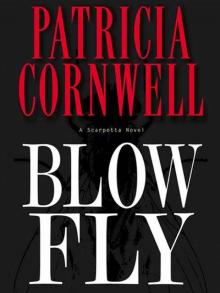 Blow Fly
Blow Fly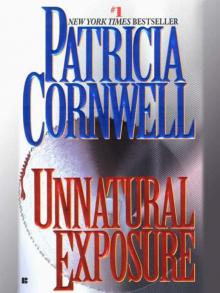 Unnatural Exposure
Unnatural Exposure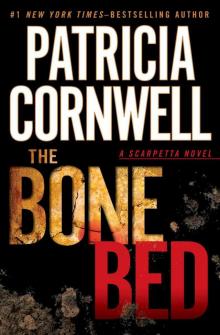 The Bone Bed
The Bone Bed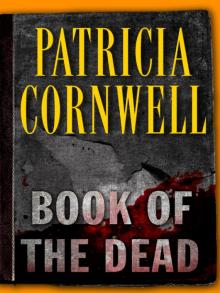 Book of the Dead
Book of the Dead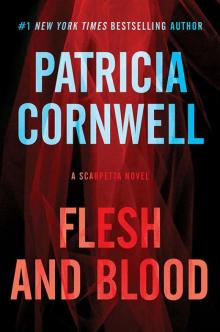 Flesh and Blood: A Scarpetta Novel (Scarpetta Novels Book 22)
Flesh and Blood: A Scarpetta Novel (Scarpetta Novels Book 22)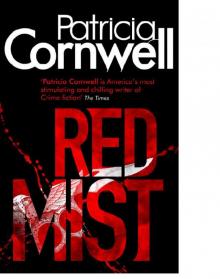 Red Mist
Red Mist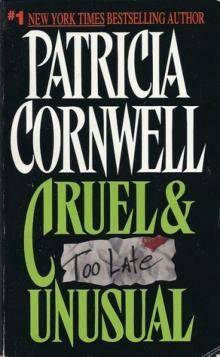 Cruel & Unusual
Cruel & Unusual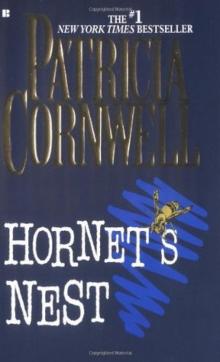 Hornet's Nest
Hornet's Nest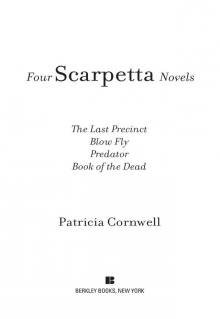 Four Scarpetta Novels
Four Scarpetta Novels Scarpetta's Winter Table
Scarpetta's Winter Table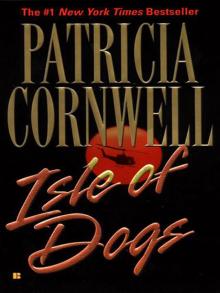 Isle of Dogs
Isle of Dogs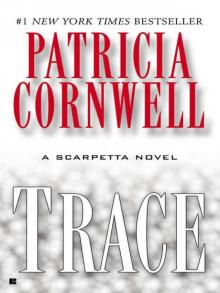 Trace
Trace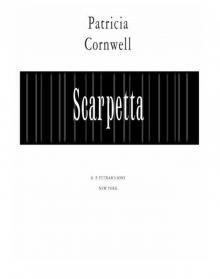 Postmortem
Postmortem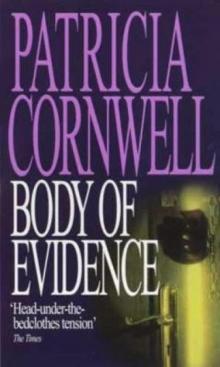 Body of Evidence ks-2
Body of Evidence ks-2 Southern Cross
Southern Cross All That Remains
All That Remains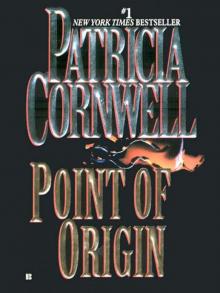 Point of Origin
Point of Origin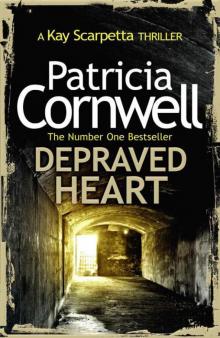 Depraved Heart
Depraved Heart Ruth, a Portrait: The Story of Ruth Bell Graham
Ruth, a Portrait: The Story of Ruth Bell Graham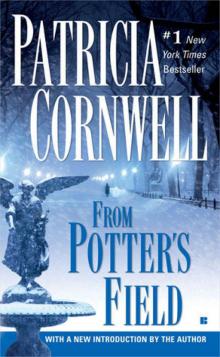 From Potter's Field
From Potter's Field Flesh and Blood
Flesh and Blood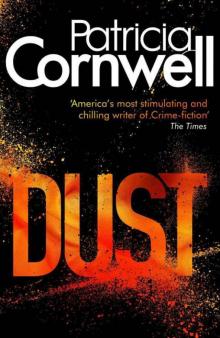 Dust
Dust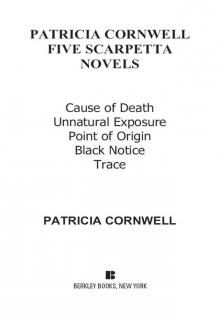 The Body Farm
The Body Farm Port Mortuary
Port Mortuary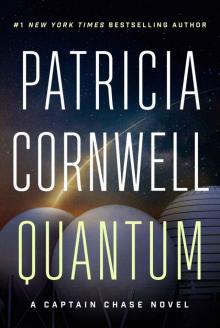 Quantum
Quantum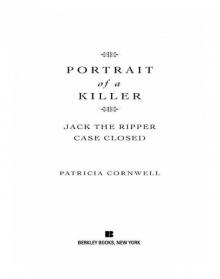 Portrait of a Killer: Jack the Ripper - Case Closed
Portrait of a Killer: Jack the Ripper - Case Closed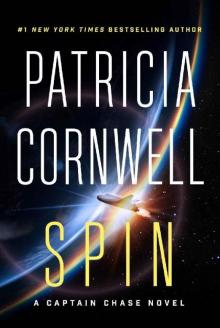 Spin (Captain Chase)
Spin (Captain Chase)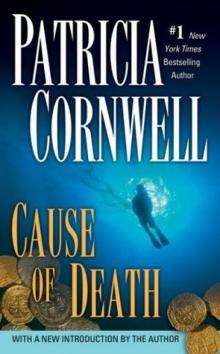 Cause of Death
Cause of Death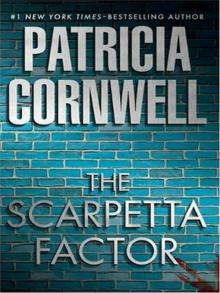 The Scarpetta Factor
The Scarpetta Factor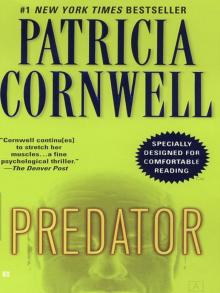 Predator
Predator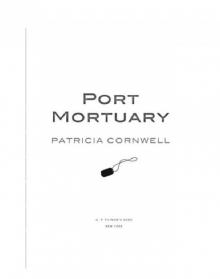 Scarpetta 18 - Port Mortuary
Scarpetta 18 - Port Mortuary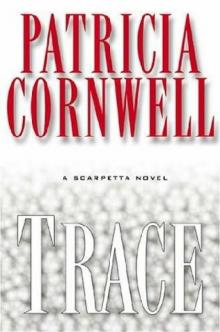 Trace ks-13
Trace ks-13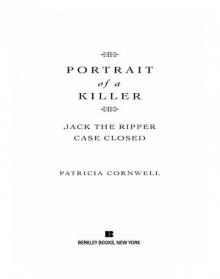 Portrait of a Killer
Portrait of a Killer Cruel and Unusual ks-4
Cruel and Unusual ks-4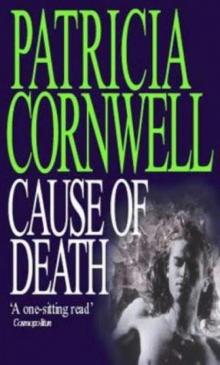 Cause Of Death ks-7
Cause Of Death ks-7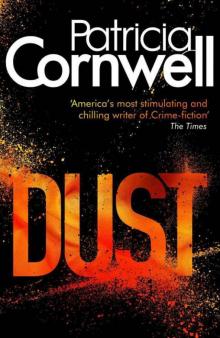 Dust ks-21
Dust ks-21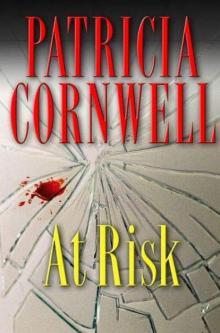 At Risk wg-1
At Risk wg-1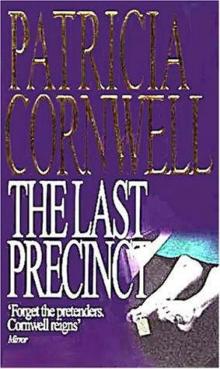 The Last Precinct ks-11
The Last Precinct ks-11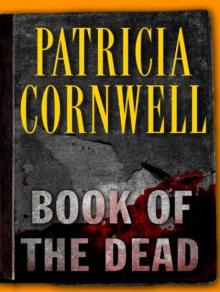 Book of the Dead ks-15
Book of the Dead ks-15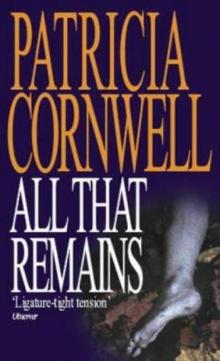 All That Remains ks-3
All That Remains ks-3 Ruth, a Portrait
Ruth, a Portrait Scarpetta's Winter Table (kay scarpetta)
Scarpetta's Winter Table (kay scarpetta)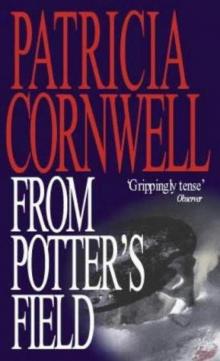 From Potter's Field ks-6
From Potter's Field ks-6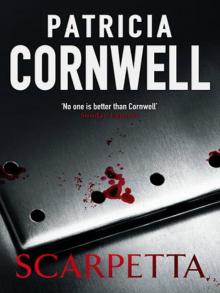 Scarpetta
Scarpetta Isle of Dogs jhabavw-3
Isle of Dogs jhabavw-3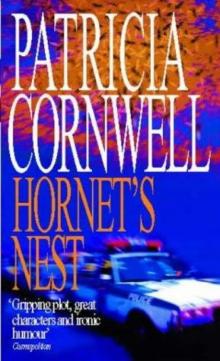 Hornet's Nest jhabavw-1
Hornet's Nest jhabavw-1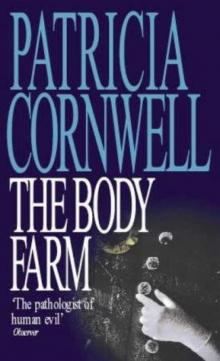 The Body Farm ks-5
The Body Farm ks-5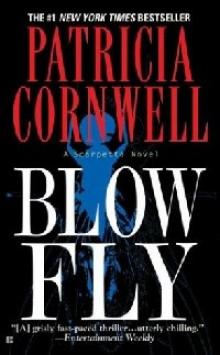 Blow Fly ks-12
Blow Fly ks-12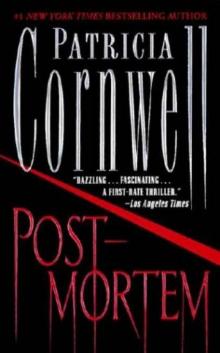 Post Mortem
Post Mortem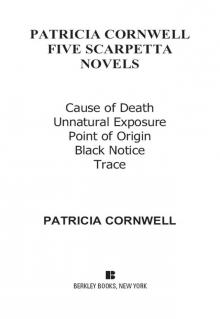 Five Scarpetta Novels
Five Scarpetta Novels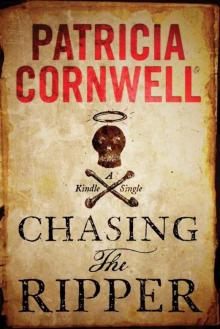 Chasing the Ripper (Kindle Single)
Chasing the Ripper (Kindle Single) Point of Origin ks-9
Point of Origin ks-9 Port Mortuary (2010)
Port Mortuary (2010)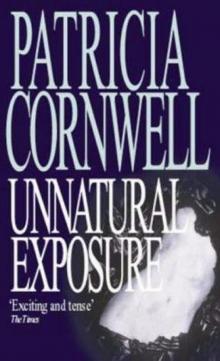 Unnatural Exposure ks-8
Unnatural Exposure ks-8 Southern Cross uhabavw-2
Southern Cross uhabavw-2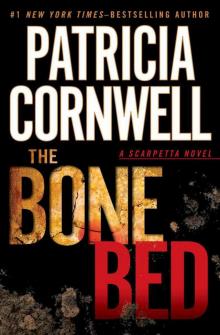 The Bone Bed ks-20
The Bone Bed ks-20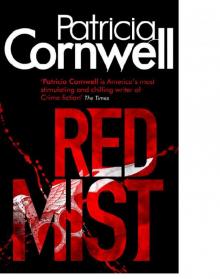 Red Mist ks-19
Red Mist ks-19 Port Mortuary (2010) ks-18
Port Mortuary (2010) ks-18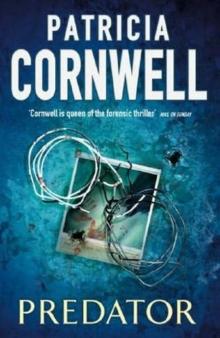 Predator ks-14
Predator ks-14